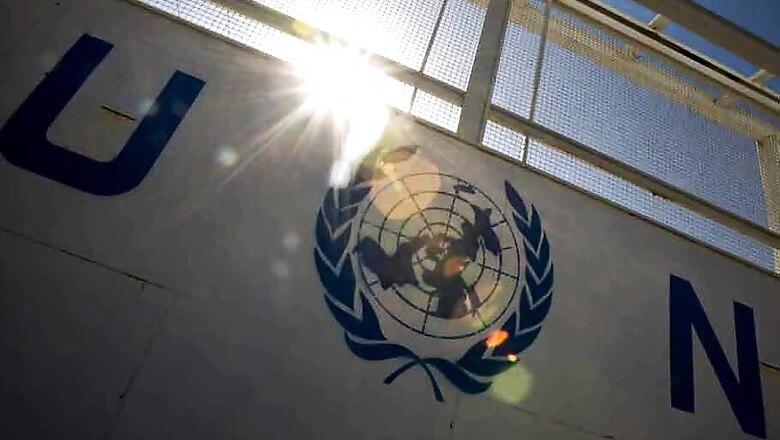
views
Hyderabad: A decision to ensure safe transfer, handling and use of living modified organisms (LMOs) is expected to be taken at the ongoing UN convention here on bio-safety. The LMOs are the organisms that have been genetically modified through biotechnology. The sixth meeting of the Conference of Parties (to the Cartagena Protocol on Bio-safety (COP MOP 6)), that began on Monday, is discussing capacity-building, bio-safety clearing-house, socio-economic considerations concerning LMOs and review of the effectiveness of the Protocol, officials of the Convention of Biological Diversity (CBD) said.
The decisions taken on all the issues are expected to contribute to the vision of the 10-year strategic plan for the protocol adopted in 2010 - making biodiversity adequately protected from adverse effects of LMOs. Charles Gbedemah, an official of the Secretariat of the CBD, said efforts are being made to adopt a framework to help countries in capacity-building in different components of bio-safety. He said discussions were taking place on the Nagoya-Kuala Lumpur Supplementary Protocol, its current status of ratification and signing. The Supplementary Protocol, which was adopted at Nagoya, Japan in 2010, received 51 signatures and two ratifications by March 6, 2012. It will come into force 90 days after 40 Parties have ratified it, he said.
The Supplementary Protocol deals with liability and redress for damage resulting from trans-boundary of movements of LMOs. The bio-safety clearing-house established by the Protocol as a mechanism to facilitate exchange of information on LMOs and to assist in implementation of its provisions are being discussed at the COP MOP 6. Capacity-building relates to the development or strengthening of human resources and institutional capacities in bio-safety for the purpose of effective implementation of the Protocol. A framework is expected to be adopted at COP MOP 6 for effective implementation of the Protocol, the officials said.
Compliance with the Protocol is a significant aspect and the event would consider the recommendations of the panel and take appropriate action to see that all parties to the Protocol comply with the requirements. The COP in 1994 designated the global environment facility (GEF) as the institutional structure entrusted with the operation of the financial mechanism. The COP MOP 6 would recommend measures to improve the level of GEF's support for the implementation of the Protocol.
Also, the Parties to the Protocol are likely to take decisions on the import of LMOs for intentional introduction into the environment, in accordance with scientifically sound risk assessments. The ongoing sixth meeting might take a decision to encourage the use and testing of the document entitled 'Guidance on Risk Assessment of LMOs' in actual cases of risk assessment. "COP MOP 6 provides yet another opportunity to strengthen international cooperation and build global political support for the Protocol and its Supplementary Protocol. It also presents an opportunity to lay new strategies and mobilise resources for the implementation of the two treaties," said Braulio Ferreira de Souza Dias, the executive secretary of the Convention on Biodiversity.
The COP MOP 6 will be followed by the Conference of the Parties to the Convention on Biological Diversity (COP 11) between October 8 and 19 and is expected to see participation of heads of several countries and also Prime Minister Manmohan Singh.
















Comments
0 comment